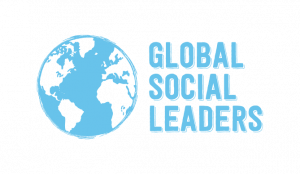We are delighted to share a blog written by student Rana, from Isikkent Middle School, who is part of a team delivering a Global Goals project for the 2021-22 GSL Global Goals Competition.
Their project is among over 957 social action projects currently running as part of the GSL movement and we are excited to be supporting them to design and lead positive social change in their community!
It’s never been this much fun but challenging to adapt ourselves to a sustainable lifestyle.
Project Summary
Since the beginning of our project, we have made a significant amount of progress. We are currently in the action and implementation phase of our project.
To summarize what we have done so far;
1) Single Use Plastic Bottles: We noticed that the use of single-use plastic bottles in our school has increased significantly due to the pandemic. Although some of the students used their own water flasks, most of them found it easier to buy water in plastic bottles from the canteen. In addition, one plastic bottle of water was given free of charge to everyone in the cafeteria every day.
In our preliminary research, we determined that the daily waste of plastic water bottles in our school is as much as 800. Not only did the plastic bottles go to waste, but also some water. In order to raise awareness of this issue, we first created corners to collect plastic bottles, wastewater and plastic lids in the busiest areas of the school. We tried to draw attention to the problems and harm caused by throwing them away by telling students and staff in our school’s assemblies on Monday morning and Friday afternoon, and we encouraged everyone to use these waste bins.
As a team, we started a ‘bring your own bottle’ campaign. The number of our friends who joined us increased in a short time. In order to raise awareness, we decided to make a Christmas tree with the plastic bottles we collected. For this, we cooperated with the Eco Club team of our high school and created our tree with the collected bottles, prepared posters that draw attention to the damage caused by plastic bottles to the environment and hung them around the tree. We used the collected wastewater to water the flowers in the offices. This project got a lot of attention; the number of students who started using their own flasks increased day by day. We held a meeting with the school’s general management and asked for their support to put an end to the use of plastic bottles in our school, and we set January 1, 2022 as a New Year’s resolution for this change.
In support of our project, the school general administration first placed water dispensers in the school corridors and dining hall area, so that we could fill our water bottles as much as we wanted during the day. Afterwards, we stopped the sale of plastic bottles in the canteen and the free distribution in the cafeteria. For sustainability, we pioneered the gifting of flasks by the school general management to the entire school community. There is no plastic bottle waste or wasted drinking water anymore in our school.
2) Give Them A Second Chance: We knew that we had to reconsider our consumption habits for a sustainable life. The results of our survey also showed us that there is a big gap in this regard. We wanted to take action to find new owners for all kinds of items that are clean, well-maintained and usable but we have become bored of using or we no longer need.
We heard about the activities of the national charity called Çağdaş Yaşamı Destekleme Derneği- a non governmental organization-for 2nd Hand Items. The organization offers all kinds of usable items for sale in the 2nd Hand Store and the income from the sales of these goods contributes to educational scholarships for children. This work got us very excited. We immediately contacted the institution and started a campaign to collect clothes, shoes, kitchenware, home accessories, etc. in our school. We drew attention to the reduction of waste and cut down on manufacturing demands, chemicals, fuel and water in our announcements. We collected 16 boxes of suitable items for sale in 3 weeks. Finally, we visited the association and delivered the parcels.
3) Composting Food Waste: Last year, we carried out our composting project to raise awareness of the fact that food waste in our homes is not garbage. This year, we decided to take action for raw vegetable and fruit wastes that appear during the preparation of meals for 1000 people at school and go to waste. We had a meeting with the representative of Sofra-Eurest, the catering company serving in our school, we talked about our project and asked for their cooperation on this issue.
First, we bought garden compost bins that are suitable for outdoor use. We created the budget of the bins by organizing Bakesale every week at lunch breaks. Then we received training on how to compost outdoors. We held a meeting with the staff in the cafeteria on what should and should not be thrown in the collection bins that we provided. We placed the 5 compost bins we bought in suitable places in the garden of our school.
Now, every day at lunch break, we collect raw fruit and vegetable wastes from the cafeteria employees in bins and pour them into our compost bin, and we follow the process. We carry out this work on a rotating basis and have separate responsibilities in this regard.
4) Waste Management Awareness Activities with Kindergarten Students: In addition to all these activities, we organized an awareness event on waste management for the kindergarten students (appropriate for their age) of our school.
We talked about not throwing garbage on the ground, sorting out wastes and how we can protect nature and all living things. We played ‘Rubbish Bin Sorting Activity’ together. We discussed together about what ‘recycling’ is and why we should recycle. At the end of the activity, we asked the students to draw and explain what they decided to do to protect the environment and nature.
The Journey
As the Enviromates team, we have greatly improved many of our existing and new skills. To specify, we developed our self-management, social and digital skills. We especially developed our self-management skills while planning when the phases of our project would take place and planning the time that we would devote to this project. We also used our social skills to invite people to take action with us. Our project made our habits more sustainable, so we became more caring to nature and environment.
The most difficult part for us was raising awareness and making people take action with us. To achieve and overcome this, we first set up an Instagram account to share our activities and gained followers. Thanks to the power of social media, we have now 541 followers who support us. Then at our school, we had several meetings and presentations with kindergarten students to explain the importance of compost for the climate action and being responsible individuals when consuming and made it with them. Later, we placed compost bins in our school, and we throw food waste there every day and mix them twice a week. Another aspect that we all learned and developed was how to make both garden and bokashi compost.
The biggest challenge for us was probably people’s reactions to our projects. When we took action to abolish the use of plastic bottles in our school and when we set out to compost, we faced unexpected reactions. But when we explained the threats our universe faces on both issues more clearly, as evidenced by posters and other visuals, the backlash lessened. In all the difficulties we have experienced, we have never taken a step-back from our decisions. We have experienced that we can reach our goals by being stubborn in the issues we believe in.
By participating in this program, we realized that instead of waiting for a hero to solve environmental problems, that hero is ourselves.
The Next Chapter
We believe that every individual should take part in such social responsibility projects. Because such projects contain aspects that cares about environment and make us aware of the dangers that the world is facing. In addition, being prepared for our future is not only with academic achievements but also by fulfilling our responsibilities towards the universe we live in makes us more privileged individuals.
This world needs people who are environmentally friendly and take action to find solutions to problems. If you are breathing in this universe, never forget that other living things have the right to breathe and live!
We strongly recommend this great, fun, awarding, broadening perspectives but challanging programme to everyone!














